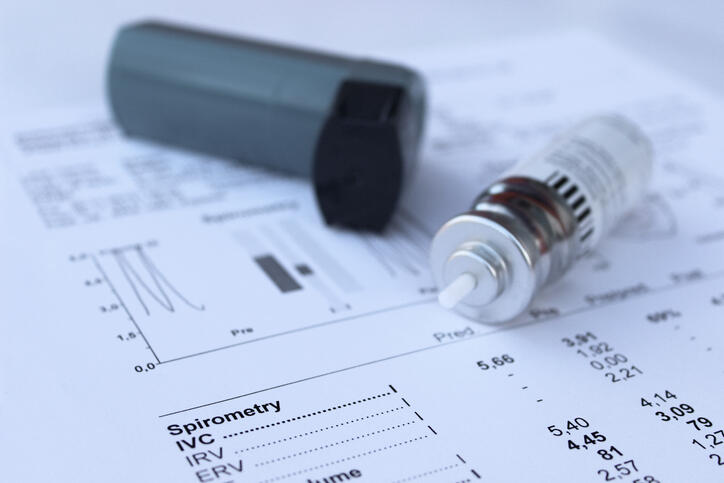
LSTM’s Senior Clinical Lecturer, Dr John Blakey, is the lead author on a new report looking at utilising new technology for the management of the symptoms of asthma which was launched by Asthma UK.
Smart Asthma, was launched at an event in London in front of academic and industry partners and describes the opportunities around the deployment of smart inhalers and connected devices as well as looking at the risks if these technologies are not used appropriately.
Asthma is the most common chronic disease globally. It affects hundreds of millions of people, reducing their ability to learn or work. Asthma attacks are a major cause of physical and psychological suffering. In contrast to many conditions, in asthma attacks and symptoms are largely preventable: recent studies show around 75% of UK admissions and 90% of UK deaths could be prevented with existing interventions. These proportions are even higher in lower income countries where inexpensive preventative medication and advice such as a personal action plan is more difficult to obtain. The number of people dying of asthma or getting admitted for the condition is not falling appreciably in the UK.
Smart inhalers are an example of an existing connected health technology that could have a major impact on asthma care. These inhalers can record when and where an inhaler, and give an assessment of inhaler technique. Linking this information to other data in a mobile phone (e.g. activity, weather) gives the user a clear picture of their disease that can be shared remotely with clinicians. Educational information to support self-management can also be delivered in a semi-automated manner through SMS, images, and videos. This facility allows new service delivery structures that do not require regular face to face consultation with clinicians.
Dr Blakey said “most people who die of asthma have previously been labelled with mild or moderately severe disease. The major issue isn’t that we need new medicines, it’s getting the information and medicine we already have to the people that need them in a timely fashion. Adding chips and sensors to inhalers costs very little in comparison to the cost of the drug, but could have a huge beneficial effect in terms of helping people manage their own disease and allowing a small number of doctors or nurses to look after a very large group of patients. This technology is already available and this report starts us on the road to widespread deployment”.